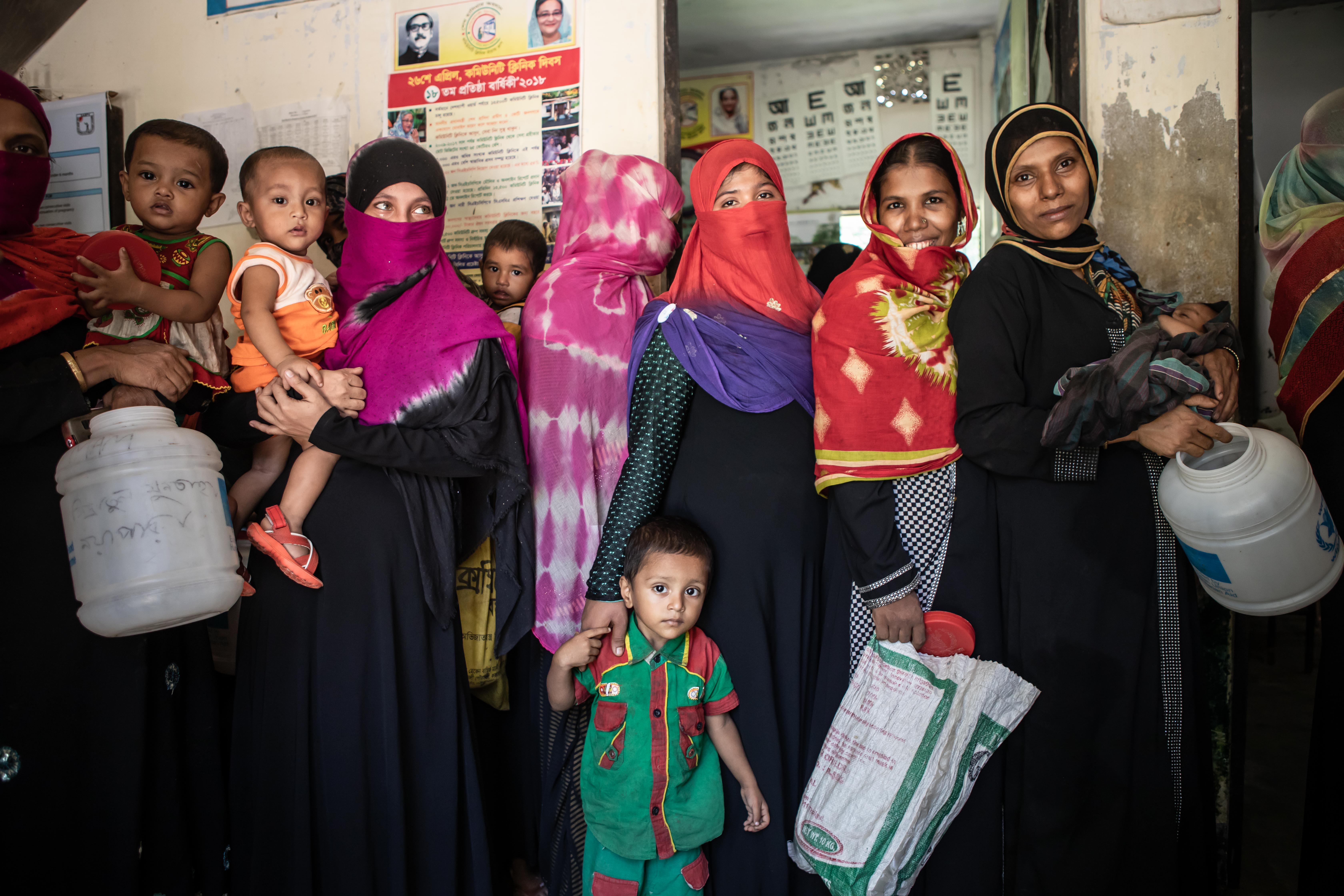The United Nations Population Fund, UNFPA, says social distancing measures are urgently needed for COVID-19 clinics and other facilities servicing high-density populations, such as those in camps for refugees and internally displaced people.
The largest refugee settlement in the world, in Cox’s Bazar, Bangladesh, has a population density of around 70,000 people per square kilometre, while many inner-city slums in several countries have even higher population densities, making social distancing a formidable challenge.
UNFPA, the UN’s sexual and reproductive health agency, has released a guidance note for maternal health services, which includes limiting the number of patients waiting at clinics for antenatal check-ups and other health services, as well as providing adequate space for patients to remain at a safe distance from each other while they are waiting.
UNFPA’s guidance also includes suggestions on how to balance the competing demands of maternal healthcare with treatment and testing for COVID-19, particularly when pregnant women present with symptoms of the coronavirus.
Catherine Breen Kamkong, Sexual and Reproductive Health Regional Adviser for UNFPA Asia-Pacific noted that health systems around the world are quickly adapting to new protocols around hygiene and social distancing in response to the pandemic, but that pregnant women should not miss out on their crucial antenatal and postnatal checkups due to restrictions on proximity.
“Despite the challenges, there are ways to keep running clinics for pregnant women and their babies without putting them or the general population at risk,” she said.
Along with clear social distancing measures, UNFPA suggests several other measures:
- Triage and risk screening for all women presenting to health facilities;
- Development of referral pathways from basic to comprehensive services for women who do have symptoms of a maternal or newborn emergency and may require acute life saving care;
- Ensuring a supply of face masks for women presenting with symptoms, and full personal protective equipment for health workers treating them;
- Maintaining routine infection control measures such as regular cleaning and handwashing.
Where possible, UNFPA is also working with health services to develop options for components of antenatal care delivered via video or voice calls, while still following all World Health Organization (WHO) protocols and evidence-based practices.
“With the right protocols in place, it’s possible to ensure that pregnant women still get the services they need, even during this pandemic,” Breen Kamkong said.


